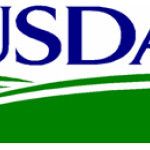- Industry: Government
- Number of terms: 41534
- Number of blossaries: 0
- Company Profile:
A duty or levy imposed under authority of Title VII of the U.S. Tariff Act of 1930. Title VII states that if the U.S. Department of Commerce determines that an imported product is being sold at less than its fair value, and if the International Trade Commission determines that a U.S. producer is thereby being injured, the Commerce Department shall apply antidumping duties equivalent to the dumping margin.
Industry:Agriculture
On national forests, the Forest Service estimate of the market price for timber to be cut and removed. It cannot be less than the base rates. The appraised price is the advertised minimum for competitive bidding by purchasers.
Industry:Agriculture
An underground geological formation, or group of formations, containing usable amounts of groundwater that can supply wells or springs for domestic, industrial, and irrigation uses. Removing more groundwater from an aquifer than is naturally replenished is called overdrafting, and can result in a dropping water table, increased pumping costs, land subsidence (which reduces the future recharge capacity), saltwater intrusion, reduced streamflows in interconnected ground- and surface-water systems, and exhaustion of groundwater reserves. Overdrafting groundwater occurs primarily in the Plains States and the West.
Industry:Agriculture
A contract entitling the holder to receive a payment when the area yield is below (above) the put (call) option strike yield. The strike yield is the yield at which the holder of an option contract can exercise the option.
Industry:Agriculture
A dry climate with an annual precipitation usually less than 10 inches. Not suitable for crop production without irrigation.
Industry:Agriculture
A federal agency, part of the Department of the Army, which has jurisdiction over the navigable waters of the United States. The Army Corps is responsible for granting §404 permits concerning depositing dredge and fill materials in wetlands under federal jurisdiction (33 U.S.C. §1344).
Industry:Agriculture
The mechanical injection of semen into the womb of the female animal with a syringe-like apparatus.
Industry:Agriculture
A serious pest of hardwood trees in its native China that by 1998 had been found in 14 states in the United States, where it has no known natural enemies. APHIS is now working to detect and destroy the beetle, which is virtually impossible to eradicate with pesticides because it bores deep inside trees to lay its eggs; the only known suppression method is to remove and destroy infected trees. The agency reports that the beetle, which already has led to the destruction of many trees in parts of New York, could destroy millions of acres of hardwoods—including maples, horse chestnuts, poplars, willows, and elms—if it becomes established in the environment. APHIS believes that the beetle has been entering the United States in solid wood packing materials such as pallets and crates from China. For that reason, in late 1998, it banned all shipments from China containing such packing materials if they have not been treated to kill the pest.
Industry:Agriculture
Established in 1989, APEC is a formal institution with a permanent secretariat located in Singapore. Its original 12 members include Australia, New Zealand, the United States, Canada, Japan, South Korea, Thailand, Malaysia, Indonesia, the Philippines, Singapore, and Brunei. In 1991, APEC admitted China, Taiwan (admitted as Chinese Taipei), and Hong Kong. Mexico and Papua New Guinea joined in 1993; Chile joined in 1994; Peru, Russia, and Vietnam joined in 1998. The 21 nation member APEC provides a forum for ministerial level discussion and cooperation on a range of economic issues including trade, investment, technology transfer, and transportation. According to APEC, a key feature that sets it apart from other international organizations is its commitment to business facilitation and the regular involvement of the private sector in a wide range of APEC activities.
Industry:Agriculture
Generally an automatic or mandatory deduction from a producer's marketing receipts used to fund activities that promote or otherwise support a particular farm product. Under certain agricultural marketing orders or commodity promotion programs, assessments may be applied against receipts to help pay for generic advertising or research. The term check-off is often used interchangeably with assessment. Federal deficit reduction marketing assessments have also been connected to certain commodity price support programs (dairy, peanuts, sugar, tobacco, and soybeans) to help reduce the federal budget deficit, which arguably is higher because of the programs.
Industry:Agriculture
